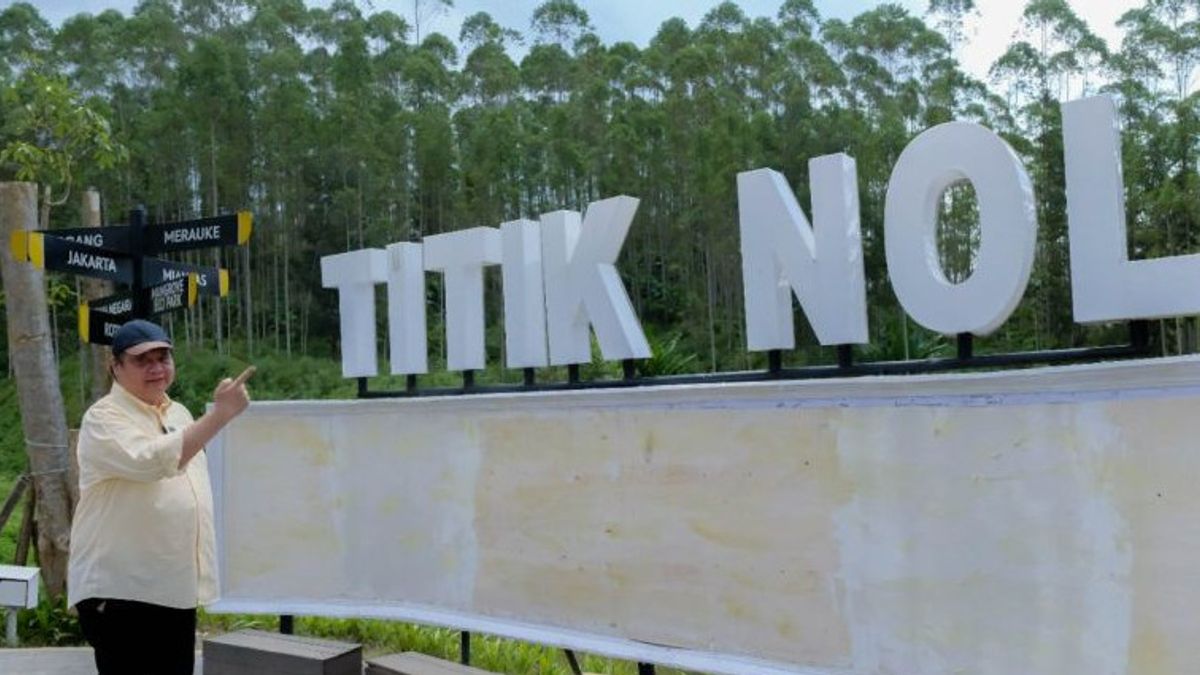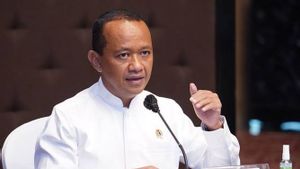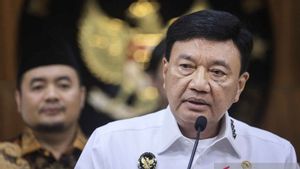JAKARTA - The COVID-19 pandemic is one of the challenges the world is currently experiencing. Indonesia is one of the countries that has succeeded in dealing with the COVID-19 pandemic. As a result, this will also affect positive economic growth in 2022.
The Indonesian government views the economy in 2022 as optimistically because it already has a good foundation, where national economic growth is quite high, reaching 5.01 percent in Quarter I-2022. In addition, Indonesia's GDP per capita also increased from US$3,172 in 2010 to US$4,350 in 2021.
In the midst of achieving this growth, the government realizes that there is still a gap in economic development between Java and Outside Java.
Based on data from the Central Statistics Agency (2021-2022), it is known that around 57 percent of Indonesia's population is concentrated on the island of Java and its contribution to Indonesia's GDP is 57.78 percent in Quarter I-2022. In the same period, the economy of Kalimantan Island contributed 8.29 percent to GDP, Sumatra 21.96 percent, Sulawesi 6.73 percent, Bali and Nusa Tenggara 2.66 percent, and Maluku and Papua 2.58 percent.
To address the economic growth gap, the government has enacted Law Number 3 of 2022 concerning the State Capital (UU IKN) in February 2022.
Coordinating Minister for Economic Affairs Airlangga Hartanto said the formation of the IKN Law was based on the urgency of moving IKN which had previously been conveyed by the President of the Republic of Indonesia at the MPR RI Annual Session on August 16, 2019.
Furthermore, Airlangga said the policy direction for IKN relocation has basically been mandated in the 2020-2024 RPJMN as part of the regional development priorities of Indonesia's urban areas.
"IKN development has been directed outside Java Island with a more balanced location spatially and economically, as a stimulus for equitable distribution of national economic growth," he said in an official statement, Sunday, June 19.
In the long term, said Airlangga, the existence of IKN is expected to act as an economic super hub and national economic value chain. The economic super hub development will be developed in six strategic, resilient, and innovative economic clusters, including the clean technology industry cluster, the integrated pharmaceutical cluster, the sustainable agriculture industry cluster, the ecotourism cluster, the chemical and chemical derivative product cluster, and the low-carbon energy cluster.
In addition, Airlangga continued, there are also two supporting clusters, namely 21st century education and smart cities and the Industry 4.0 Center.
"Relocating IKN to Kalimantan Island and making it an economic super hub is one strategy to shift the share of economic growth and development from the west to the east," he said.
Airlangga said the capital city of the archipelago has a vision as a world city for all that is built and managed with the aim of becoming a sustainable city in the world, driving Indonesia's economy in the future, and becoming a symbol of national identity.
IKN development certainly requires a supply of quality human resources, especially from residents around IKN. Increasing the national education budget is one way for the Government to improve the quality of human resources. In 2022, an education budget of IDR 542.8 trillion has been allocated.
"The centers of excellence needed at IKN, for example regarding green cities, digital transformation, and the development of hydropower technology in Kalimantan, which downstream can generate hydrogen-based industries, can be encouraged from the study center of the University of Balikpapan. I also want a new unicorn startup to emerge from this university student initiative one day," he said.
The English, Chinese, Japanese, Arabic, and French versions are automatically generated by the AI. So there may still be inaccuracies in translating, please always see Indonesian as our main language. (system supported by DigitalSiber.id)













